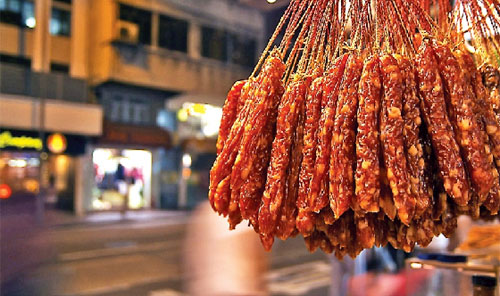Food documentary stirs culinary craze
 0 Comment(s)
0 Comment(s) Print
Print E-mail China Daily, May 30, 2012
E-mail China Daily, May 30, 2012
Chen and his team behind the cameras had to make sure there were stories behind every beautiful, tempting image of food, incorporating ingredients, places and food producers that reflected geographical, historical, religious and anthropological relevance.
|
Taste of Time Salting, air-drying, pickling and freezing are the major ways Chinese people preserve foods. These are also the methods that have produced a lot of time-honored delicacies, such as Jinhua ham and salted fish. This episode aims to explore how the wisdom of our ancestors influences food preservation technologies. |
"It is our hope that the series could reflect the changes of Chinese food in history, and the impact of rapid changes in China on families and relationships," Chen says.
This is especially apparent in the second episode, Story of Staples. The cameras zoom in on an old couple in the Ningbo countryside who makes traditional rice cakes. They only see their children once or twice a year because the second generation has deserted the land and opted to live in the city. The increasing number of empty nesters, old people left alone in their rural homes, has become a significant social phenomenon in the country.
Another sign of encroaching urbanization can be seen in the seventh and final episode, Our Country, Our Fields. It shows the hanging garden of Beijinger Zhang Guichun, who carefully tends 100 square meters of vegetables on an apartment rooftop. In the city where land is scarce, Zhang and the like are trying their best to create an oasis among the concrete barrenness.
Dong Keping, a Beijing gourmet who was also consulted for the documentary, thinks the modern industrialization process and over-population have already resulted in the sacrifice of certain valuable resources, such as the traditional "three delicacies", rare fish from the Yangtze River.







Go to Forum >>0 Comment(s)